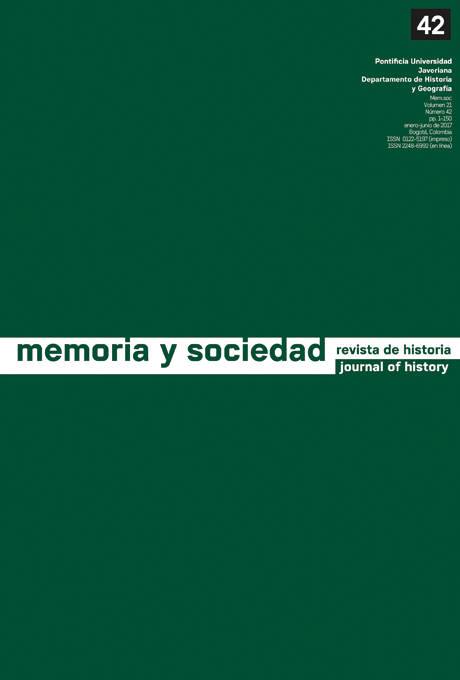Abstract
The implications of the armed conflict in Colombia seem to be mitigated by initiatives of symbolic construction of memory, which tend to go beyond the theatricalization of memory. Undoubtedly, these initiatives contribute to ensuring the non-repetition of the violent events that gave rise to them. However, they usually do not provide spaces for reflection on the daily lives of victims, which are reconstructed through elements such as language. Based on stories told by some of the women of the Trujillo's Association of Relatives of Victims (AFAVIT), this paper aims to analyze how life is given meaning day by day, as well as the resources used to achieve this. Supporting this is the problematization on the role of language, which reflects the constant tension of survivors between telling what happened to prevent repetition or not telling it to avert the dangerous effects that threaten their physical and emotional well-being.
The journal Memoria y Sociedad is registered under a Creative Commons Attribution 4.0 International Public License. Thus, this work may be reproduced, distributed, and publicly shared in digital format, as long as the names of the authors and Pontificia Universidad Javeriana are acknowledged. Others are allowed to quote, adapt, transform, auto-archive, republish, and create based on this material, for any purpose (even commercial ones), provided the authorship is duly acknowledged, a link to the original work is provided, and it is specified if changes have been made. Pontificia Universidad Javeriana does not hold the rights of published works and the authors are solely responsible for the contents of their works; they keep the moral, intellectual, privacy, and publicity rights.
Approving the intervention of the work (review, copy-editing, translation, layout) and the following outreach, are granted through an use license and not through an assignment of rights. This means the journal and Pontificia Universidad Javeriana cannot be held responsible for any ethical malpractice by the authors. As a consequence of the protection granted by the use license, the journal is not required to publish recantations or modify information already published, unless the errata stems from the editorial management process. Publishing contents in this journal does not generate royalties for contributors.

